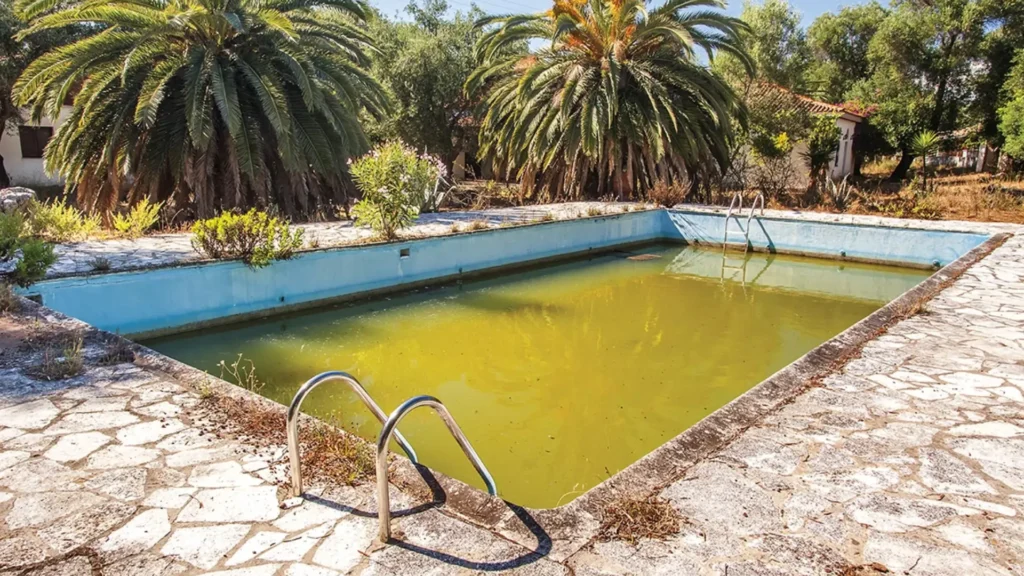Neglecting pool cleaning can have serious repercussions on water quality and the health of swimmers. Maintaining a clean pool is essential not only for aesthetic reasons but also for ensuring a safe and healthy swimming environment. In this article, we will explore the various impacts of poor pool maintenance, highlighting the importance of regular pool cleaning.
Degradation of Water Quality
One of the immediate consequences of neglecting pool cleaning is the degradation of water quality. Without regular maintenance, debris, dirt, and organic matter accumulate in the pool. This leads to cloudy, murky water and creates a breeding ground for algae and bacteria. Poor water quality is not just unsightly; it can also cause damage to the pool’s filtration system and other equipment, resulting in costly repairs. Consistent pool cleaning, including skimming the surface, vacuuming the floor, and brushing the walls, ensures clear and inviting water, keeping the pool environment safe and enjoyable.
Health Risks for Swimmers
The health of swimmers is directly affected by the quality of the pool water. Neglecting pool cleaning allows harmful microorganisms, such as bacteria and viruses, to thrive. These pathogens can cause a range of illnesses, including skin infections, respiratory issues, and gastrointestinal problems. Moreover, unbalanced water chemistry, often resulting from irregular maintenance, can lead to skin and eye irritation. Regular pool cleaning, along with proper chemical balance, is crucial in preventing these health risks. Testing the water frequently and maintaining the appropriate levels of chlorine and pH can significantly reduce the likelihood of infections and irritations, ensuring a safe swimming experience for everyone.
Algae Growth and Its Consequences
Algae growth is a common problem in neglected pools. Algae not only make the pool water green and uninviting but also pose safety hazards. Slippery pool surfaces caused by algae can lead to accidents and injuries. Furthermore, algae can clog the filtration system, reducing its efficiency and leading to more frequent and costly maintenance. Regular pool cleaning, including the use of algaecides and proper circulation of water, is essential to prevent algae growth. By keeping the pool clean and well-maintained, you can avoid the unsightly appearance and potential hazards associated with algae.
Long-Term Damage to Pool Infrastructure
Neglecting pool cleaning can cause long-term damage to the pool’s infrastructure. Accumulated dirt and debris can lead to staining and corrosion of the pool surfaces and equipment. Over time, this can result in structural damage that is expensive to repair. Additionally, a poorly maintained pool can develop leaks, which further contribute to water wastage and higher maintenance costs. Regular pool cleaning, combined with timely inspections and repairs, helps preserve the integrity of the pool infrastructure. Keeping the pool free of debris and maintaining proper water chemistry protects the pool surfaces and extends the lifespan of the equipment, ultimately saving you money and ensuring a longer-lasting pool.
Learn more:
Common Pool Cleaning Mistakes and How to Avoid Them for a Pristine and Well-Maintained Pool

